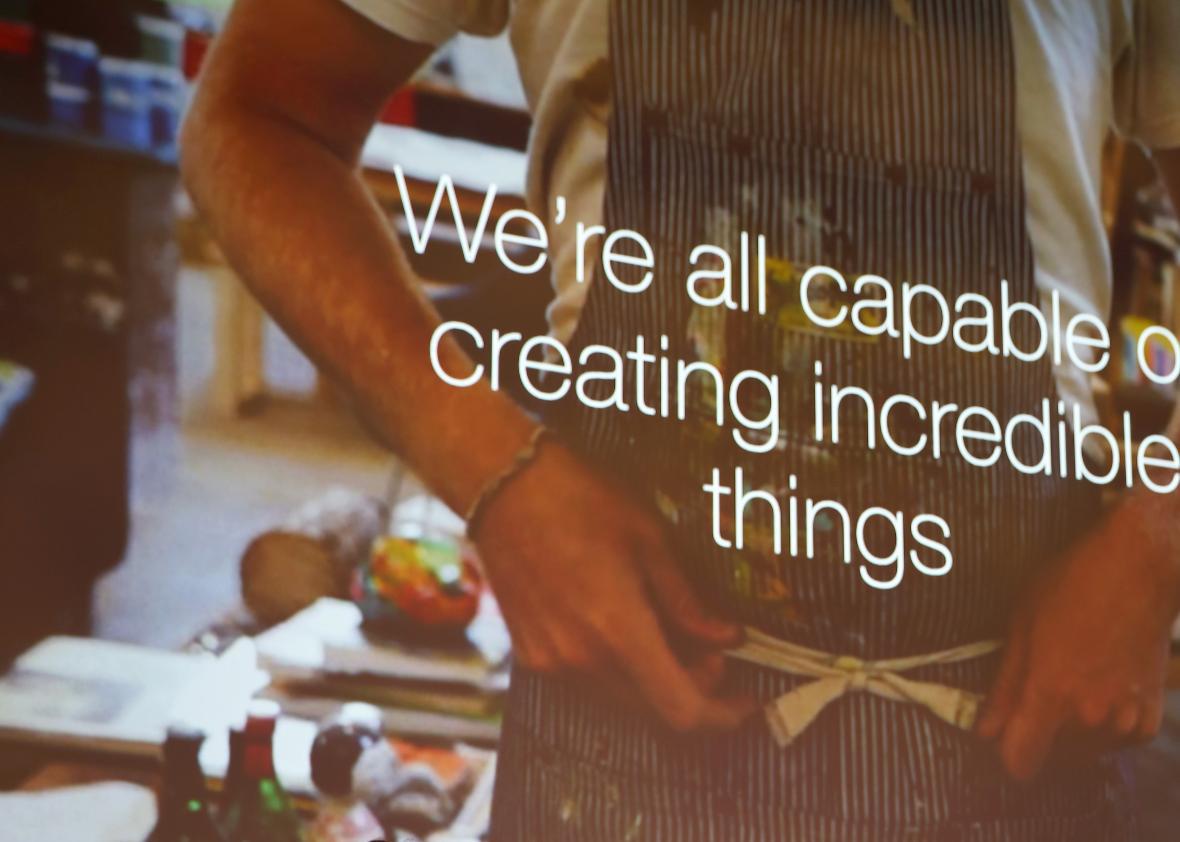Over the weekend, Kickstarter, the popular crowdfunding website, made a rather dry but nonetheless significant announcement. It was reincorporating as a so-called public benefit corporation—one with a legal obligation to do good not just for shareholders but also for society. “Kickstarter’s mission is to help bring creative projects to life,” it declared in a charter on its website. “We measure our success as a company by how well we achieve that mission, not by the size of our profits.”
For Kickstarter, the bullet points on this mission include “zealously” defending its users’ privacy rights, not using “loopholes or other esoteric but legal tax management strategies as a way to reduce its tax burden,” supporting green initiatives, and donating 5 percent of after-tax profits toward arts education and toward organizations that fight inequality each year (which is a lot!). While Kickstarter was already socially focused, reincorporating as a public benefit corporation essentially locks in the company’s dedication to these stated goals. In other words, at a time when Silicon Valley is overflowing with money-hunting unicorns, Kickstarter is trying to ensure that its projects stay as important as its profits.
Wait, you say. Why would a for-profit company ever want to do such a thing? Well, there are a couple reasons. First, consumers may be happier with your service and products if they feel like you’ve really made a serious social commitment. Second, formalizing that commitment can act as a hedge in the event of management shake-ups or other big changes. Ben & Jerry’s famously became a certified B-corporation (a private designation given to public benefit corporations and other socially focused companies) in 2012, 12 years after it was acquired by Unilever, as part of an effort to demonstrate that being owned by a corporate giant hadn’t altered its devotion to a social agenda.
“In a normal company, the only commitment management has to the shareholders is to make money,” says Paul Brest, director of the law and policy lab at Stanford Law School. A public benefit corporation “also has a social commitment.”
The flip side is that companies reincorporating as public benefit corporations can end up sacrificing a good deal of flexibility because, as Brest says, “It really is binding yourself to a particular social mission.” That might explain why just 0.01 percent of American businesses are certified B-corporations, though far more have their own social missions. Chipotle, for example, has made much of its “food with integrity,” but to become a B-corporation it would eventually have to outline that mission in writing, perhaps more permanently than it would like.
Perry Chen, Kickstarter’s co-founder and chairman, tells the New York Times that the platform’s emphasis on social good has “allowed us to find people who have a similar idealism.” He says the company elected to become a public benefit corporation because “there’s a huge difference between a values document and the legal foundation of your company.” We’ll see how that plays out. In the meantime, Kickstarter users have one more thing to feel gloaty about.
